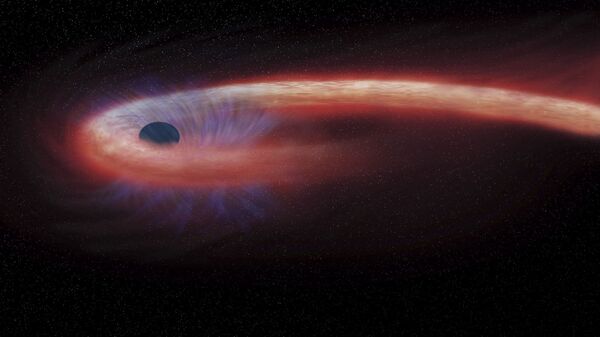Echoes caught in gravitational waves around newly-formed black holes might turn the theory about the event horizon there upside down. According to the University of Waterloo in California, their research reports the first tentative detection of these signals, produced by microscopic quantum “fuzz”, in the ripples in the fabric of space-time from the collision of black holes or similar compact objects, like neutron stars.
Astronomy professor Niayesh Afshordi and his coauthor Jahed Abedi from the Max-Planck-Institut für Gravitationsphysik in Germany used data from LIGO/Virgo gravitational wave detectors, recording a neutron star collision. By doing this they provided experimental evidence that black holes can lack event horizons, which is against Albert Einstein’s Theory of General Relativity. They laid out their observations in a study called “Echoes from the Abyss: A highly spinning black hole remnant for the binary neutron star merger GW170817”, published in the Journal of Cosmology and Astroparticle Physics.
Farewell to Einstein’s Theory?
Afshordi points out that for a long time scientists supported the understanding that nothing within the event horizon, or point of no return, can escape the gravity of a black hole. But Stephen Hawking “used quantum mechanics to predict that quantum particles will slowly leak out of black holes”.
Until this very recent discovery concerning gravitational waves no researcher had been able to experimentally detect the so-called Hawking radiation.
“If the quantum fuzz responsible for Hawking radiation does exist around black holes, gravitational waves could bounce off of it, which would create smaller gravitational wave signals following the main gravitational collision event, similar to repeating echoes”, he explained.
More Research Needed
“Now that scientists know what we’re looking for, we can look for more examples, and have a much more robust confirmation of these signals. Such a confirmation would be the first direct probe of the quantum structure of space-time”, he revealed.





